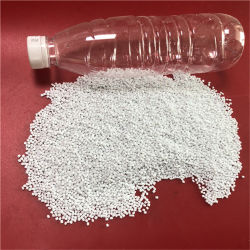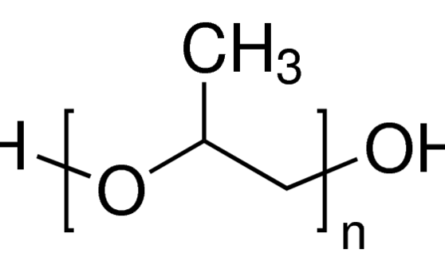Epoxy resin has become one of the most versatile synthetic materials in use today. With its ability to bond, seal and protect a wide range of materials, epoxy resin is used in many industries for various applications. This durable and versatile material continues to grow in popularity due its impressive strength, adhesion and resistance properties.
What is Epoxy Resin?
Epoxy resin is a type of reactive prepolymer and polymer which contains epoxide groups. It is produced by reacting epichlorohydrin with bisphenol-A to form a dimerized material with two terminal epoxide groups on each end. The cured end product of any epoxy resin is a thermosetting polymer that is tough and lightweight with excellent adhesive properties.
Epoxy resins demonstrate high bond strength, toughness, chemical resistance and thermal properties that make them ideal for applications where high performance adhesives or structural materials are required. Some key characteristics of cured epoxy resins include superior adhesion, chemical resistance, low shrinkage during curing and high glass transition temperature.
Curing and Hardening Process
This curing process is initiated by adding a curing agent or hardener, usually an amine or anhydride. Once the hardener is mixed with the epoxy resin, it starts a chemical reaction that ultimately results in extensive crosslinking between individual epoxy molecules, solidifying the material into its final cured thermoset form.
Common Uses of Epoxy Resin
In arts, crafts and hobbies, epoxy resin is frequently used as an encasing medium for memorable objects, photos or jewelry. It is often poured over collectibles to permanently seal and encapsulate them for display. Epoxy resin art uses natural materials like stones, sea glass or flowers embedded in colorful resin sheets, blocks or pendants.
Electronics
Electronic circuit boards are manufactured using Epoxy Resins laminate sheets which bond copper traces and protect sensitive components. Wire coils and transformers are insulated with cast epoxy resin due to its low shrinkage and superior insulating capabilities. Marine-grade epoxy is ideal for waterproofing electrical connections.
Adhesives and Surface Bonding
Epoxy adhesives form extremely strong permanent bonds between various substrates like metals, ceramics, wood and composites. They are extensively used for automotive assembly and repair, glass bonding, structural gluing of building materials and pressure sensitive adhesive tapes. Epoxy coatings provide resilient, non-slip protection for floors, counters and other surfaces.
Composite Materials
Reinforced with fibers like carbon, glass or Kevlar, epoxy resin is a key matrix material in high-performance fiber-reinforced plastics (FRPs). From wind turbine blades to sporting goods to spacecraft parts, the stiffness, light weight and corrosion resistance of epoxy composites make them suitable for many structural applications where strength and durability are critical.
Coatings and Paints
Due in part to their excellent adhesion, epoxy paints and coatings are widely applied as protective finishes for metal, concrete and other substrates. They form lasting barrier seals ideal for industries such as oil and gas, chemical processing, marine vessels, infrastructure and flooring. Epoxy coatings resist corrosion, abrasion and chemicals while providing non-slip surfaces needed for safety.
Other Applications of Epoxy Resin
In addition to the above uses, epoxy resin also finds applications in areas such as tooling composites for mold-making, potting and casting electrical/electronic components for insulation and protection, stiffening adhesives for aircraft interiors, structural adhesives for automotive and aerospace components, civil engineering applications such as anchoring bolts and repairing cracks or holes in concrete structures. In summary, epoxy resin versatility and superior properties make it relevant for a wide range of industries and manufacturing sectors worldwide.
Environmental and Safety Considerations
While epoxy resins provide performance benefits, their production and use also necessitate certain environmental and safety precautions. Bisphenol-A (BPA), a key component in most commercial epoxy resins, has come under scrutiny due to potential health hazards. Manufacturers are exploring alternatives like plant-derived materials and methods to minimize BPA exposure during formulation and curing processes. Proper ventilation and personal protective equipment is required when handling uncured epoxy resins and hardeners. Certain precautions should also be taken for their long-term disposal and recycling. However, with responsible production and application practices, epoxy resins can enable sustainability goals through increased strength, lifetime and performance of end products while reducing their carbon footprint over time.
In summary, epoxy resin is an indispensable synthetic material that performs reliably in many applications where high strength, adhesion and durability are paramount. Its versatility across industries from aerospace and automotive to construction, marine, electronics and more continues to drive ongoing innovations with epoxy technology. New developments aim to further enhance epoxy properties for advanced applications in areas like green energy and next-generation infrastructure. Going forward, wider adoption of bio-based epoxy resins also promises to make this established class of thermosetting polymers more environmentally sustainable.
Note:
1. Source: Coherent Market Insights, Public sources, Desk research
2. We have leveraged AI tools to mine information and compile it



